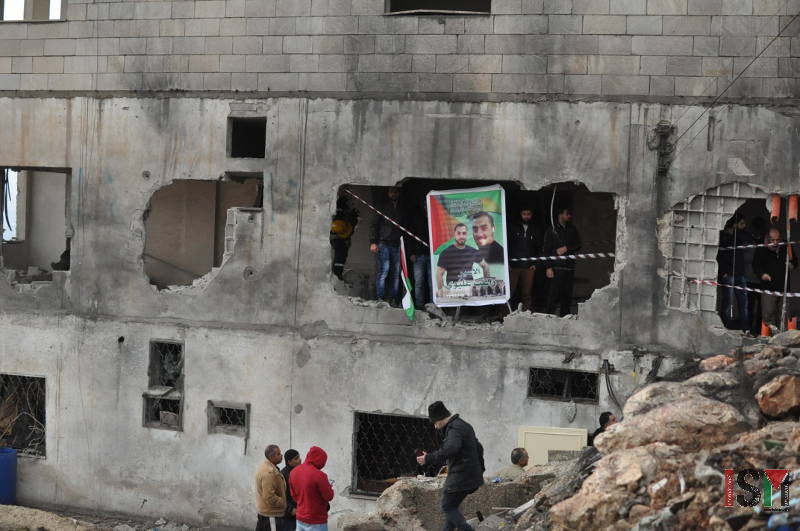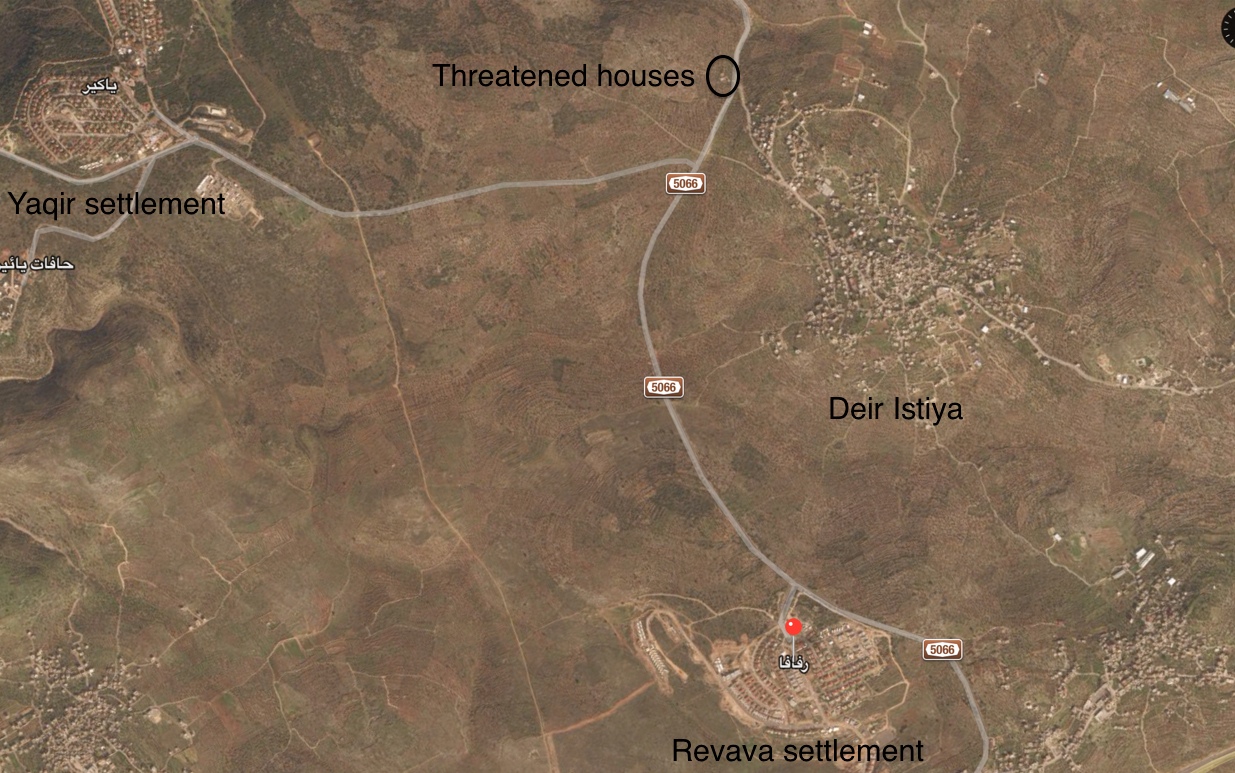Category: Nablus
-
Home of Raghib Elawi demolished in Nablus, damaging surroundings severely
December 3rd, 2015 | International Solidarity Movement, Huwwara team | Nablus, occupied Palestine Wednesday night, at 1 am, Israeli forces came to the neighborhood of Dahia, in Nablus, to demolish the house of the family of Raghib Elawi, who was accused of participating in the Itamar killings a month ago. Local witnesses say that around…
-
Israeli forces invade homes and threaten families with nine children in Deir Istyia
November 30th, 2015 | International Solidarity Movement with IWPS, Huwwara team | Deir Istyia, occupied Palestine Deir Istyia, in Salfit district, is a village of 4000 inhabitants who mostly live on agriculture. The Salfit district has 19 villages and 24 settlements. Land confiscation is ongoing in the area and many of the settlements are…
-
Illegal Israeli settlers threaten to burn a family of 11
28th November 2015 | International Solidarity Movement, Nablus team | Madama, occupied Palestine Earlier today, November 28th, a group of Israeli illegal settlers, in the presence of three Israeli soldiers, threatened to burn down a family in the village of Madama, occupied West Bank. At noon, 25 settlers from the nearby settlement of Yitzhar trespassed…



